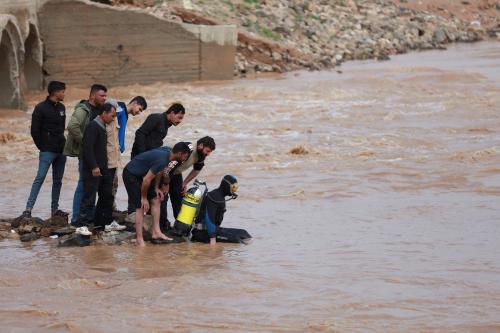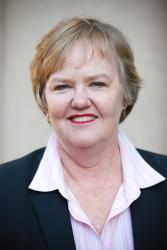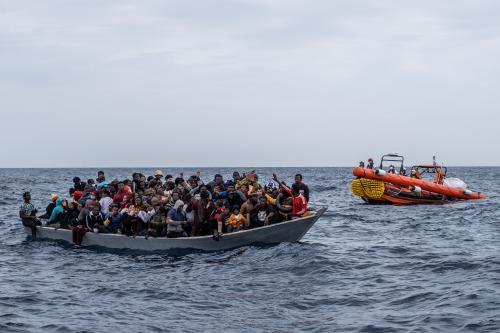

10:00 am EST - 11:30 am EST
Past Event
10:00 am - 11:30 am EST
1775 Massachusetts Ave., NW
Washington, DC
While significant lessons have been learned in the aftermaths of Hurricane Katrina and the Asian Tsunami, key issues like the rights of displaced persons still need to be fully considered and addressed. It is easy to forget, for example, that in the more than two years since Katrina, several hundred thousand Americans still remain displaced from their homes. Although new policies and procedures have been instituted, poor governmental responses to these events need to be examined further. In particular, the fundamental rights of people most affected by natural disasters must be made a top priority – the right to protection against discrimination and exploitation; the right to equal access to assistance; the right to return to their homes and to have their lives restored.
On January 14, the Brookings-Bern Project on Internal Displacement hosted a discussion to examine the ways to place human rights at the center of any future response to a major natural disaster in the U.S. or elsewhere in the world. The discussion focused on the rights of individuals and whether those rights should be made a priority in all governmental and public response plans.
Walter Kalin, the representative of the U.N. Secretary-General on the Human Rights of Internally Displaced Persons, delivered opening remarks. Chris Kromm, executive director of the Institute for Southern Studies, released his new report examining the long-term response to the Katrina disaster. Linda Poteat, director of disaster response at InterAction, discussed disaster risk reduction strategies. Brookings Senior Fellow Elizabeth Ferris moderated the discussion.



Gabriela Nagle Alverio, Jeannie Sowers, Erika Weinthal
June 15, 2023
2023
Online Only
10:00 am - 11:15 am EDT

Reva Dhingra
February 15, 2023